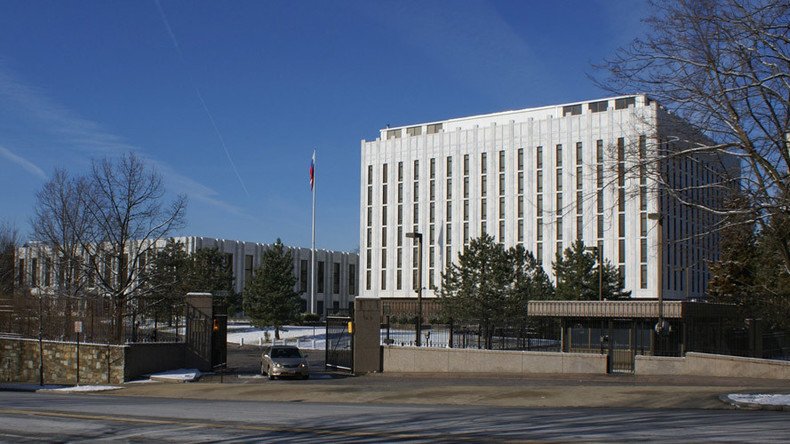Reviving the Cold War? Senate intelligence bill ‘targets Russian spies, diplomats’

The Senate Intelligence Committee is backing a bill to reinstate a Cold War-era committee aimed at cracking down on "covert influence" by Russia. The bill also restricts travel by Russian diplomats and considers a US exit from the Open Skies treaty.
The 2017 Intelligence Authorization Bill, passed by the Senate Intelligence Committee in May, “requires the president to establish an interagency committee to counter Russian active measures,” according to the office of Senator Dianne Feinstein (D-California).
Further details of the bill were reported by BuzzFeed on Tuesday.
Section 501 of the proposed legislation is asking the White House to revive a presidentially-appointed group to uncover Russian spies and Russian-sponsored assassinations. It would also investigate the funding of front groups for Russian operations, as well as “covert broadcasting, media manipulation,” and secret funding.
The tasks would be completed by a group which would meet monthly and include staff from the State Department, US intelligence community, and several other executive offices.
The new committee would be similar to the 'Active Measures Working Group,' which fulfilled a similar role in the Cold War, one intelligence official told BuzzFeed on condition of anonymity.
Leashing the diplomats
Section 502 would require the FBI to investigate all requests by US-based Russian diplomats to travel 50 miles outside his or her official post, in order to ensure the diplomats have properly notified the US government of their travel plans. No Russian diplomats would be allowed to travel outside the radius unless all of their colleagues had followed the travel rules in the previous three months. The FBI would be required to notify Congress that the diplomats have followed the rules before the travel is cleared by the State Department.
Members of foreign embassies and consular posts are typically permitted to freely travel around the US, but the proposed restrictions against Russians come after diplomats were found bending the rules, BuzzFeed reported, citing the State Department.
“The Russians tend to notify State Department at 5pm on a Friday that they’re planning to go outside their 50 mile radius, and the State Department doesn’t want to be the bad guy [and say no],” an anonymous US intelligence official told Buzzfeed, adding that the FBI often doesn't have enough time to investigate the travel plans, putting the US at a disadvantage.
“We don’t have the kind of manpower the Russians do, to run 24/7 tails on everyone,” the official said. “I don’t think a diplomat’s secretary could leave the [US] embassy [over there] without being followed.”
No more Open Skies?
Section 503 envisions the US intelligence community conducting a study of setting up an aerial surveillance arrangement that could replace the Open Skies Treaty of 1992. This new “information sharing architecture” would specifically target Russia, with “Moscow, Chechnya, Abkhazia, South Ossetia, Kaliningrad, or the Republic of Belarus” listed as areas of particular interest.
The same section also requests an analysis of the benefits the US gets from being a party to the Open Skies Treaty, and the “potential implications and reactions” were the US to withdraw from it in favor of the new arrangement.
The Hill GOP chairmen to Obama: Don't allow Russian spy flights over US: Three Republican chairmen of House c... https://t.co/nJInbN2esV
— DEFCON Hill (@defconhill) June 16, 2016
In order for the bill to pass, it must be approved by the full Senate. A vote has not yet been scheduled, but is expected to be pushed through before the summer Senate recess.
It's not the first time that a Senate intelligence authorization bill has focused on Russia. A bill from 2015 required secure spaces to be built into any diplomatic facility in “the Russian Federation, (or) any country that shares a land border with the Russian Federation, or any country that is a former member of the Soviet Union.” It also required that US diplomatic facilities in Russia move away from employing locals.
Correction: A previous version of this article mistakenly attributed several quotes to State Department spokesperson Pooja Jhunjhunwala. The attribution has since been rectified.













